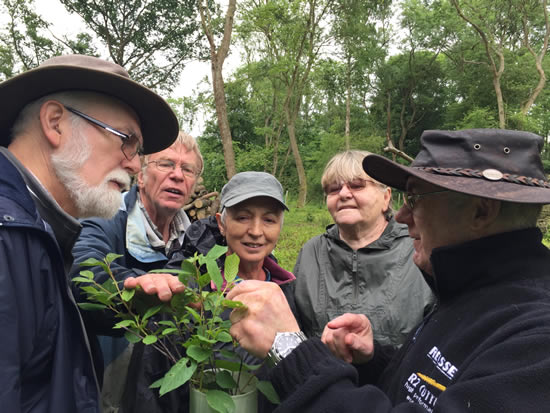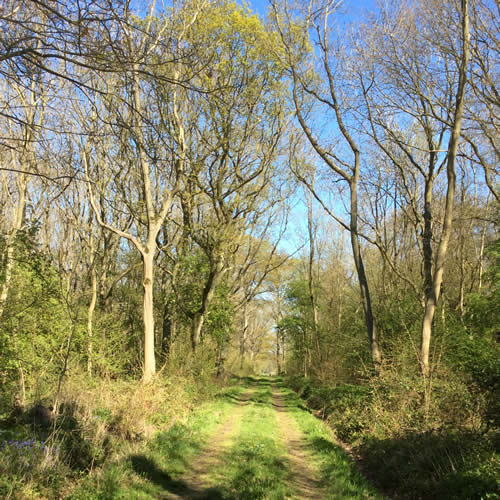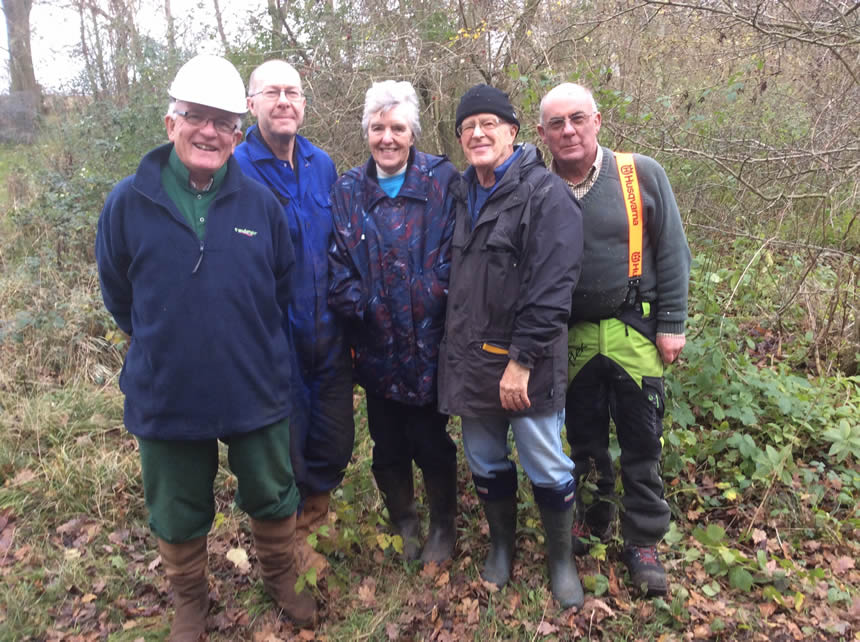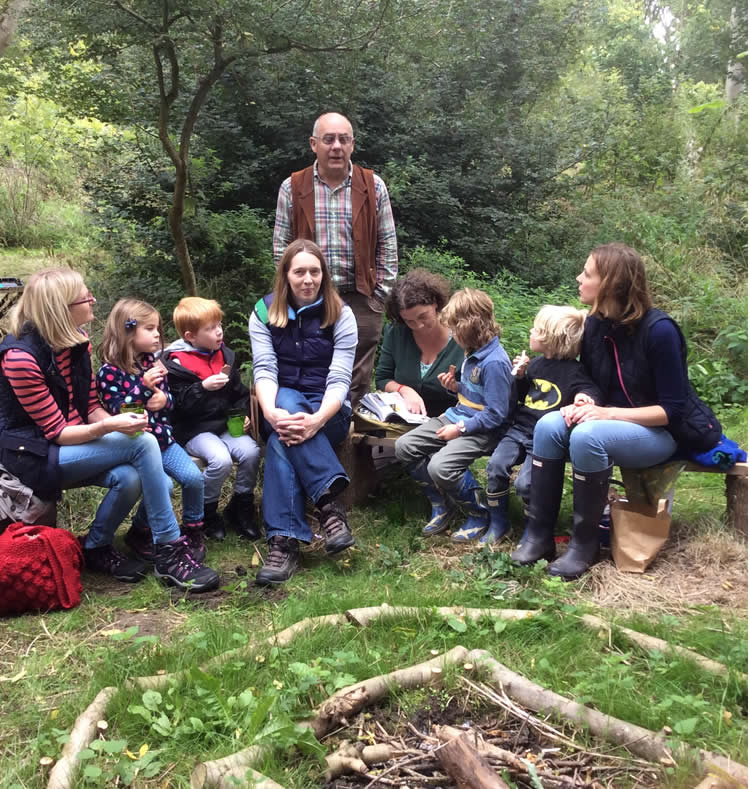Wellbeing for people and nature itself
In considering the benefits available to humans through nature connection it is important not to overlook requirements to care for nature itself.
To understand the basic tenets of wellbeing in nature requires an appreciation of the needs to develop a symbiotic relationship between nature and people. In simple terms, through learning to care for nature, nature will confer wellbeing benefits to those involved.
We’ve seen this model in action within our woodland session where volunteers are involved in light woodland management. The qualitative feedback we receive indicates that regular nature connection delivers physical, mental and emotional wellbeing benefits.
Promoting mental and physical health
There are a growing number of research studies that demonstrate association between positive health and wellbeing outcomes and nature connection related activities.
The Japanese have made Shinrin Yoku (Forest Bathing) available for their citizens for over 40 years and have amassed a wealth of scientific data on the benefits that accompany nature immersion to benefit wellbeing in nature experiences.
Nature connection has the power to reduce blood pressure and heart rate, relax muscle tension and the significantly lower production of stress hormones in the body. Regular time spent in places where people can connect with and slow down to really observe nature has proven benefits for mental, emotional and physical wellbeing.


Promoting wellbeing in nature
The need to care for the natural environment is still in relative infancy and requires considerable cultural change to embrace the need for active, rather than passive, initiatives
More people want to access nature for recreational pursuits but lack much in the way of ‘connection’ to understand best practice during their engagement.
We need to promote awareness about wellbeing in nature
We see this, in simple ways, in the fact that people are keen to get stuck into hacking back undergrowth, giving them a good workout and delivering a sense of achievement at a “job well done”. What people often lack is understanding about the wider picture and how and when to do such jobs, in relation to promoting rather than debilitating bio-diversity.
I’ve seen well-meaning chidren’s group leaders leave behind beautiful constructions of pixie palaces and elf gardens with carefully constructed little twig and wool fences. Unfortunately, what they fail to understand is the detrimental effect on nature caused by leaving such delights for the woodland fairies behind.
For people to truly appreciate and experience nature connection is going to require persistent and slow-burn initiatives. Establishing how to care for the wellbeing of nature, rather than just the wellbeing of people is going to require cultural change, which will take time.




Recent Comments